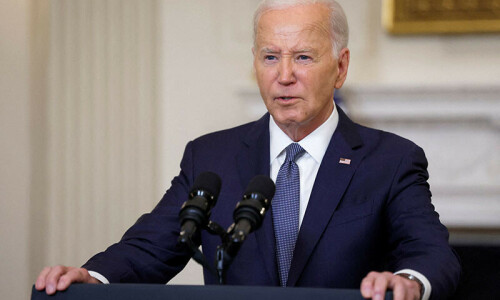THE border town of Chaman has been protesting — for nearly five months now — against the government’s imposition of a passport and visa mandate for movement between Pakistan and Afghanistan. Deep-seated discontent prevails in the local populace — traders, political parties, and civil society members — casting a spotlight on not just this issue but also the region’s overall economic hardships. The transition from a relatively open to a regulated crossing with stringent document requirements, understandably aimed at enhancing security in an area notorious for smuggling, has inadvertently impacted the community’s way of life. The local economy, which relies heavily on small-scale trade, has been hit particularly hard. While trucks have recently been allowed through, thousands of daily wage workers, who walk across, have been marginalised. A recent report by the HRCP highlights not just the immediate economic repercussions but also the long-term social and humanitarian implications of the border restrictions. It rightly calls for a nuanced approach, suggesting engagement with all stakeholders, including Afghan representatives, to find a balanced resolution that considers both security needs and the local populace’s welfare.
The protesters’ demands, ranging from the abolition of the visa policy to the restoration of small traders’ welfare packages, represent a broader plea for recognition, respect, and understanding. The proposal to facilitate visas on arrival and establish border markets is a constructive step towards mitigating the economic impact of the new regulations. These measures, coupled with investments in local industries and job-creation initiatives as suggested by the HRCP, could serve as a foundation for sustainable development in Chaman, and the wider Balochistan. The new government must balance the imperative of national security with the legitimate needs and rights of its border communities. It must engage with the protesters, understand their grievances, and explore interim solutions while working towards long-term development goals. Dialogue and diplomacy with the protesters, alongside working with a recalcitrant Kabul, are key to navigating this complex issue. As mentioned previously in these pages, ensuring that the security measures are not perceived as punitive, but as part of a broader strategy to enhance the well-being of all Pakistanis, including those in Chaman, is essential. The path forward should be marked by empathy, engagement, and concerted efforts towards economic empowerment, laying the groundwork for peace and prosperity in the region.
Published in Dawn, March 14th, 2024









































Dear visitor, the comments section is undergoing an overhaul and will return soon.